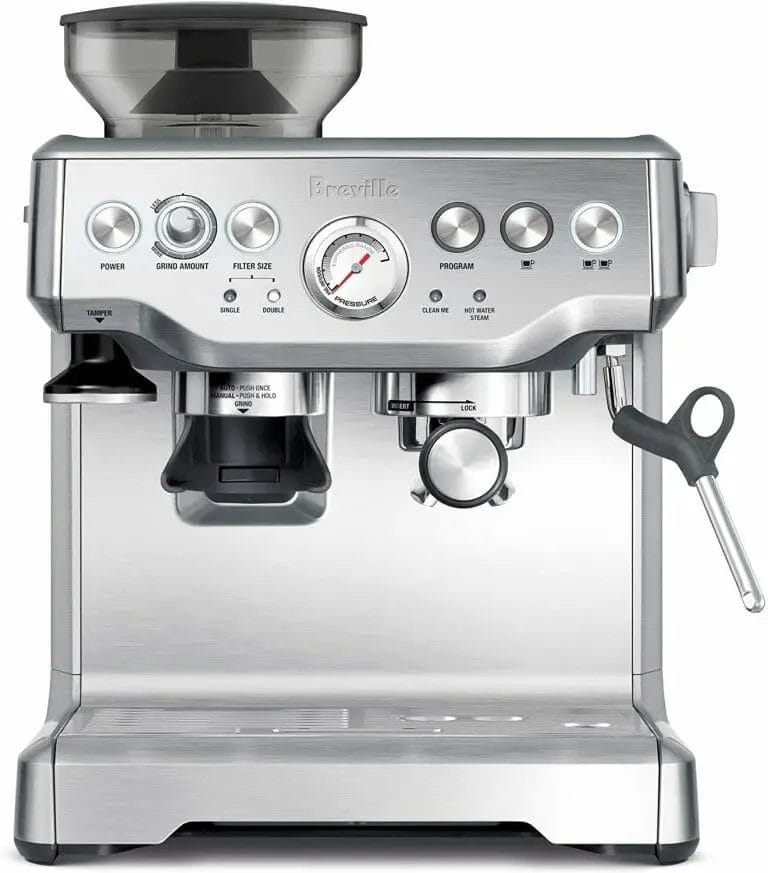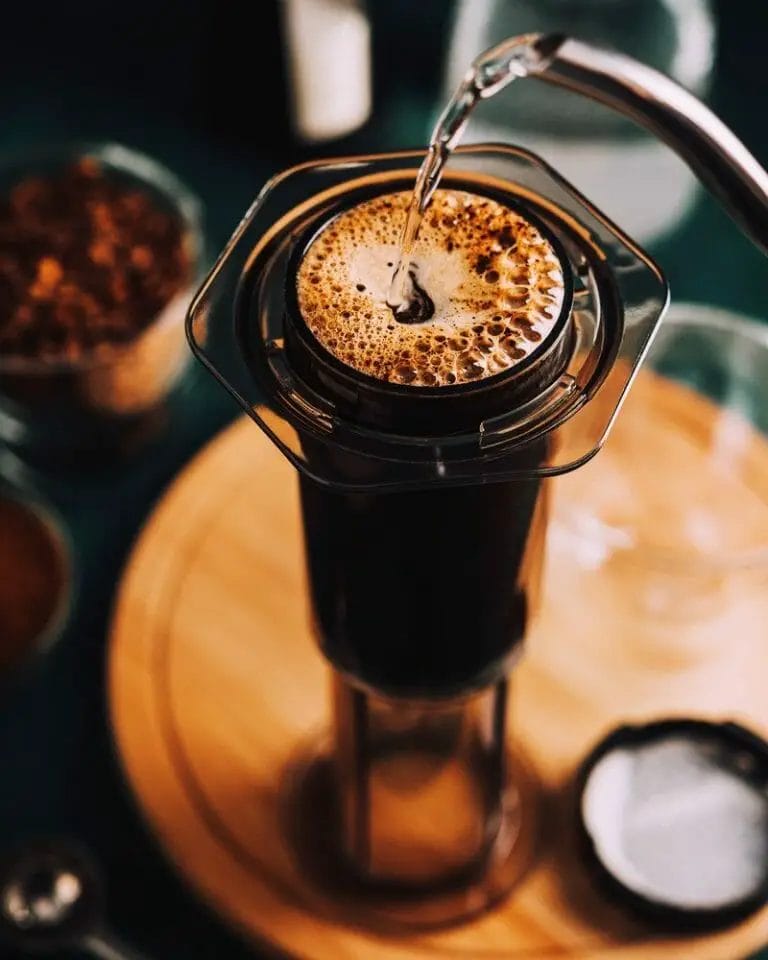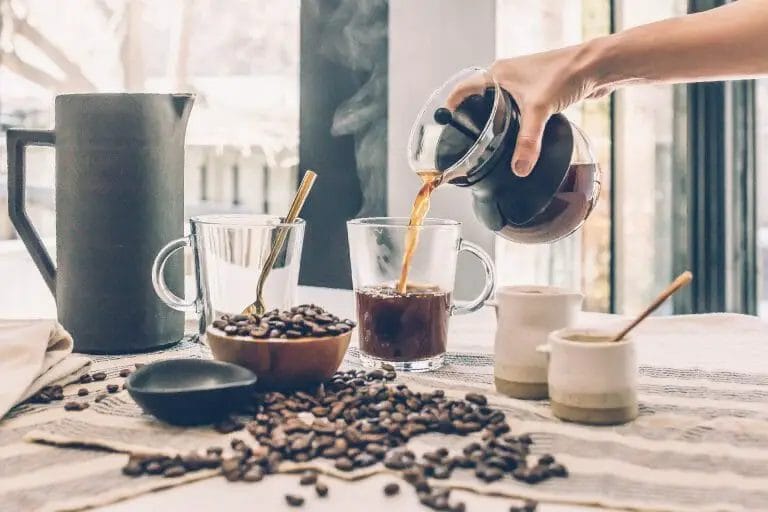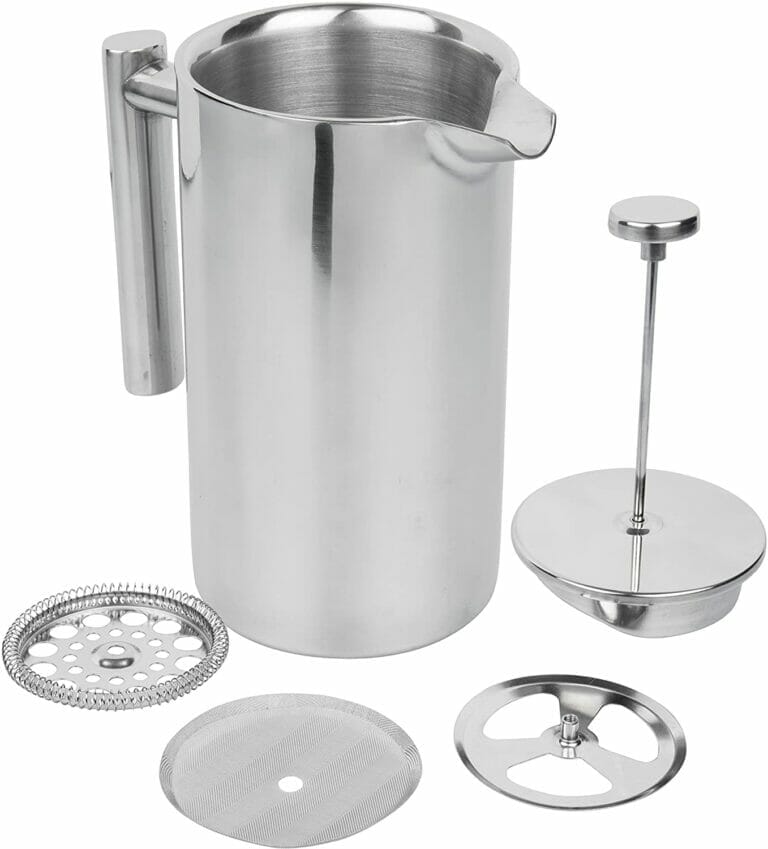The Best Water For Coffee (ph Hardness, Tds vs Brew Ratio)
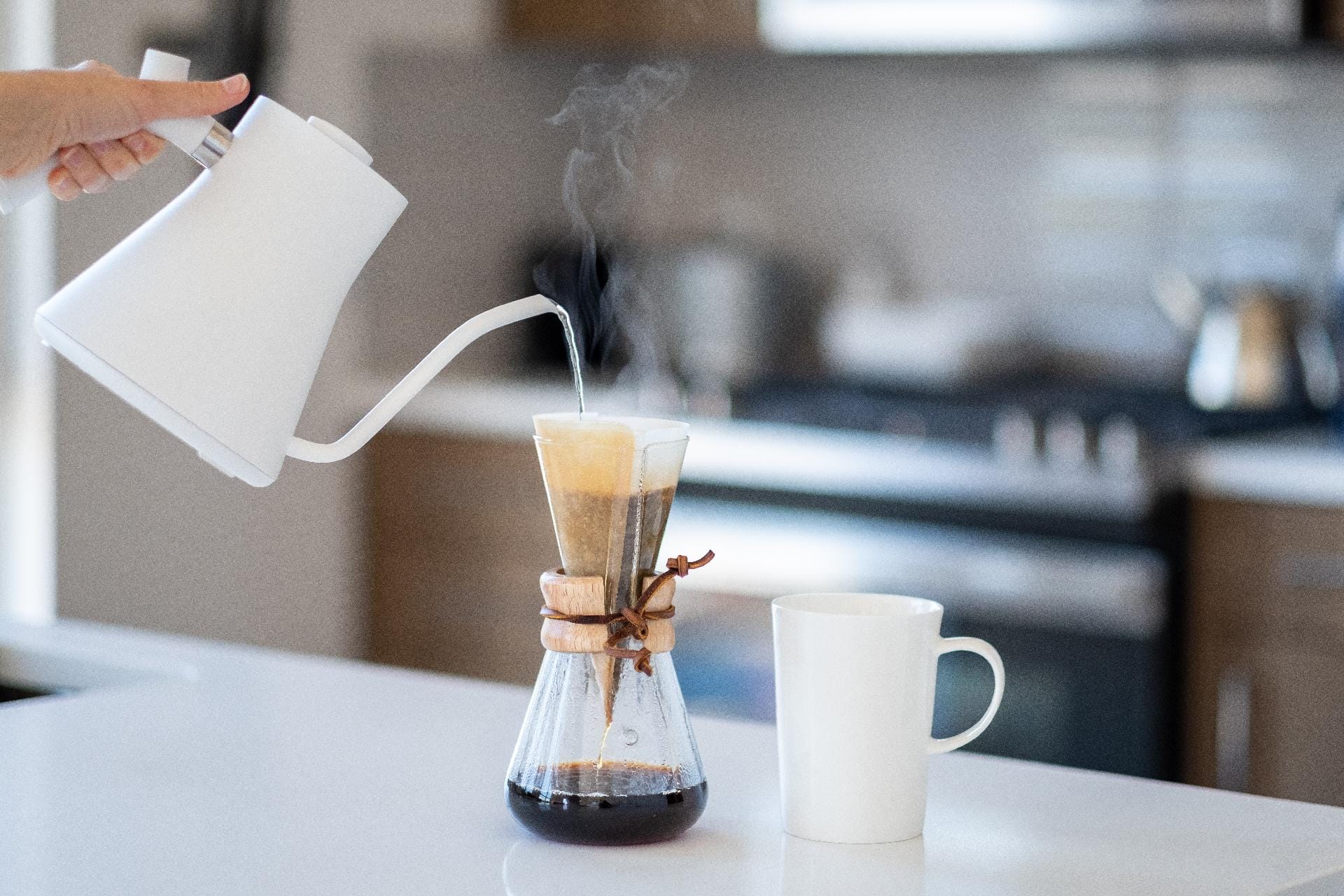
Using the best water for coffee, high quality beans and all the instructions for brewing your coffee but still not getting barista level coffee. Then the culprit may be the water you are using.
Water is the most overlooked ingredient in the process of brewing coffee. Many people buy a coffee machine, roast their own beans, and grind them fresh only to use tap water to brew their coffee. This can have disastrous results.
Even if you use a filter on your faucet and buy bottled or distilled water you may not be getting all the benefits you could get from your coffee or espresso unless you know your water’s parameters.
- How do I know if the best ph water for coffee making?
- What are the qualities of a perfect water for coffee?
- Should I use bottled or distilled water to make my coffee?
- Is chlorine bad for coffee beans and good for drinking water?
- I live near a filter spring or mineral spa. What do I need to know about the best water hardness for coffee before brewing with it?
In this beginner-friendly guide, I’ll explain everything you need to know about the tds vs brew ratio to make consistently great coffee at home.
I’ll explain the best water for coffee qualities for any type of coffee roasted from dark to light.
What’s the Best Water for Coffee: Quick Overview
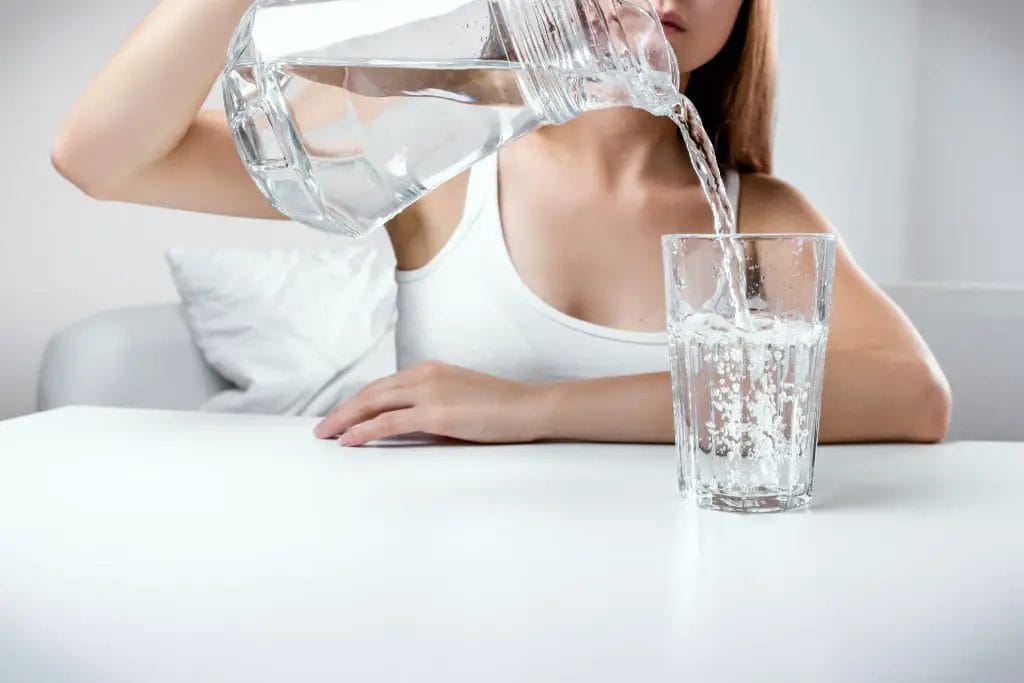
For brewing best coffee Specialty Coffee Association (SCA) has given water parameters for many coffee types and for customized water. But generally, the best water for Coffee should be more Alkaline (higher PH) with low TDS.
- Odor: Odorless
- Chlorine: 0
- Hardness: 50 to 175 ppm CaCO3
- Alkalinity: 40 to 70 ppm (40ppm ideal)
- pH 6 to 8 (7 ideal)
- Total Dissolved Solids (TDS) 75 ppm to 250 ppm (150 pmm ideal)
Perfect water for coffee And Its Influence On Coffee Extraction
While we have identified the ideal water parameters for brewing coffee we discussed why these values may vary.
Depending on where you live, your water may have a high or low TDS, pH level and hardness.
- If your water is too acidic for coffee making purposes, the coffee will taste sour and will lead to an under extraction in a typical espresso machine.
- If your water is too hard for coffee making purposes, the coffee will have a bad mouthfeel and will also lead to an under extraction in a typical espresso machine. Also it can cause over extraction of the ground coffee which can result in bitterness and poor taste.
- If your water is too low on minerals, it can also result in an under extraction in a typical espresso machine.
The ideal water pH and alkalinity values for making the best coffee is by SCA. The water should be slightly alkaline (7-8), with a low TDS (75-150 ppm) with a low level of Chlorine (0).
If the coffee is roasted darker (darker coffees soak up more water and therefore have higher acidity) it will need more acidic water.
Water is a critical aspect for making great coffee but it’s not just about alkalinity and acidity.While the alkalinity and acidity are important, one that’s often overlooked is hardness.
The harder water has less dissolved solids and total dissolved solids (TDS), which means it may be more difficult to filter when brewing coffee.
Best ph water for coffee: How To Make Your Coffee Taste Good
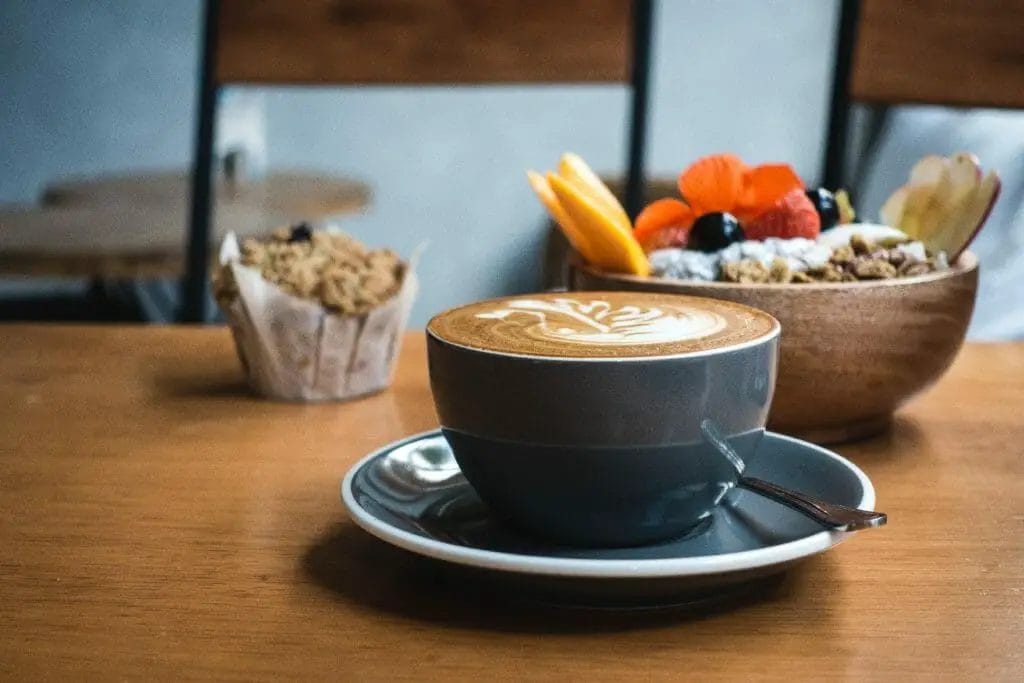
The ideal pH for making coffee is between 6.5 and 7.5. This is the best ph water for coffee.
- Soft Water: pH 5 to 5.5
- Medium Hard Water: 6 to 7
- Hard Water: 6.5 to 8
- Very Hard Water: 8+
The best water hardness for coffee is measured by the grains per gallon scale (gpg). The average hardness of U.S. tap water is around 160 gpg. (To convert gpg to ppm, divide by 0.0242.)
This can vary by as much as 10gpg from one city to another because of the rocks and minerals in the ground, which can also affect brewing coffee.
if you prepare a cup with water that’s too alkaline (pH above 8), your coffee will likely turn out flat.
pH is a logarithmic scale that measures how acidic or basic the water is. The range of pH for drinking water for people to enjoy is 6.5 to 8, which means there’s only a 1 pH point difference for our taste buds to detect.
However, coffee has a more narrowed range of 6.0 to 7.8 (1 pH point). This means that a 1 pH change in coffee can actually affect the taste dramatically.
Buffering Capacity, Alkalinity, KH In Brewing Coffee
Alkalinity or Alkalinity (KH) is also measured on a logarithmic scale. A high KH means that the water has a high buffering capacity to resist pH changes when acid or base is added to it. It’s important for brewed coffee because if the water can’t resist a change in pH, your coffee will be flat tasting.
The best ph water for coffee tells you how acidic or basic the water is. It doesn’t tell you what it would take to change its acidity., which is crucial when discussing coffee extraction.
Adding acid to water with high alkalinity will neutralize it but the pH will remain stable. Since coffee is acidic buffering capacity is important when brewing coffee. It will determine if there is change in PH in the brewed cuppa.
Lower alkalinity water is more interesting. Let’s say we add the same amount of acid to two different water profiles with the same starting pH.
Water with a higher KH will be less reactive to the added acid and its pH will change much less than that of low KH water.
This is the first example when water chemistry gets interesting from a coffee brewing perspective. If you have high alkalinity water, you will extract less acidity out of your coffee grounds than someone who has low alkaline water.
Sulfate and Coffee Extraction
Sulfates, or SO4- ions as they are usually expressed in water profiles, are negatively charged and will bind with positively charged things, such as mineral acids and CO2 (carbon dioxide) molecules.
When one of these molecules gets sequestered, it becomes unavailable for the other reactions and extraction.
Sulfate is also a catalyst for other reactions in the water. For example, sulfates remove chlorides (Cl- ions) from the water, so adding chlorinated water to your coffee can neutralize your extraction.
Sulfates are very inert. That’s why they are not an issue in the ocean water where salinity remains stable even at high levels.
If you have hard water, this means that there are a lot of sulfates and they don’t build up as quickly as they would with low levels.
Sulfate is also part of the buffering capacity, so it will reduce your extraction potential by neutralizing any added acidity (acidity is measured as pH).
General Hardness (GH)
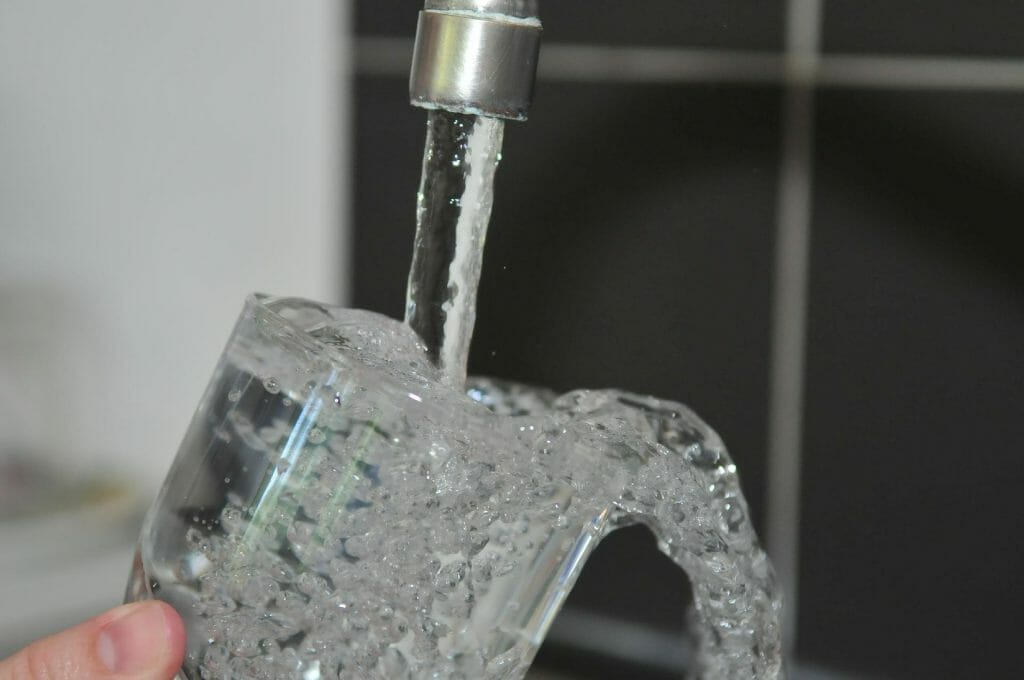
The general hardness (GH) of the water is an important factor in determining how your coffee will be brewed. If the water has a higher GH, it will have less dissolved solids (TDS), which can affect the filtration process.
A high GH level also means that there should be more acidity in your coffee and it will taste better as well.
The general hardness or GH influences the boiling point of water. The higher the GH, the higher will be the boiling point of water and vice versa.
The boiling temperature can affect coffee brewing as it determines how soluble coffee grounds will be in water that is being used for brewing.
Hardness (GH) also affects the extraction potential of your coffee beans. A high hardness (GH), on a logarithmic scale, means there are more ions that will bind with CO2 to make carbonic acid. This increases extraction potential as well as taste quality.”
Specific conductance
The specific conductance (SPC) of the water is another important factor that affects the brewing of coffee. If there is a higher SPC, it means there are more minerals dissolved in water and it is generally better for your coffee to taste better.
“The input conductance of the water in coffee brewing has a strong effect on the extraction. The higher the input conductance, the stronger will be your extraction and vice versa.”
The specific conductance (SPC) of the water can be measured by using an electrical conductivity. Most water measurements devices such as Buchi and Brewer’s Friend have sensors that read the electrical conductivity.
Aquatic (AQ) Hardness
Aquatic Hardness (AQ) is a measure of the concentration of minerals in the water. If the AQ level is high, it will extract better from your coffee grounds and produce better tasting coffee beans.
In general, it is preferable to have a higher AQ value in the water for brewing coffee. If you have an AQ index that’s too low, this can result in issues such as low acidity and bitterness as well as flat taste.
Aquatic Hardness or AQ affects the water that you use for making your cup of Joe. It measures the density of calcium bicarbonate, which can affect various factors like extraction potential and taste.
Total Dissolved Solids (tds vs brew ratio)
The Total Dissolved Solids (TDS) of the water is also an important consideration. If the TDS level is too low, your coffee will taste weak, flat and acidic. If the TDS level is too high, the coffee will taste bitter and acidic.
An understanding of tds vs brew ratio will affect the taste and quality of coffee is essential to brewing coffee. Despite its importance, this is not something that is well understood by most people, especially when it comes to making espresso.
More specifically, how the TDS affects an espresso drinker’s experience with a shot of espresso depends on whether you are brewing traditional or Turkish style coffee.
When brewing with traditional coffee making equipment, a higher TDS is actually desirable. Water that is rich in dissolved solids will help to produce a cleaner, more full-bodied flavor.
This is why professional baristas will always make sure to use water that has been filtered so it has the highest amount of dissolved solids.
If you are brewing Turkish style, though, this can be a very different story. The TDS content of your water affects the way the coffee tastes (and feels) in your mouth and throat.
When brewing Turkish style coffee with high levels of dissolved solids, it will create an unpleasant mouthfeel and may even impair your ability to taste the other nuances in the coffee like sweetness or bitterness.
The ideal range of TDS is between 100-245 ppm. The best water for making coffee is water that has a TDS between 100-135 ppm when making Turkish style coffee and 200-245 ppm when making traditional style coffee.
Different Types Of Water And Which is the best water hardness for coffee
Here is the list of the perfect water for coffee:
Tap Water
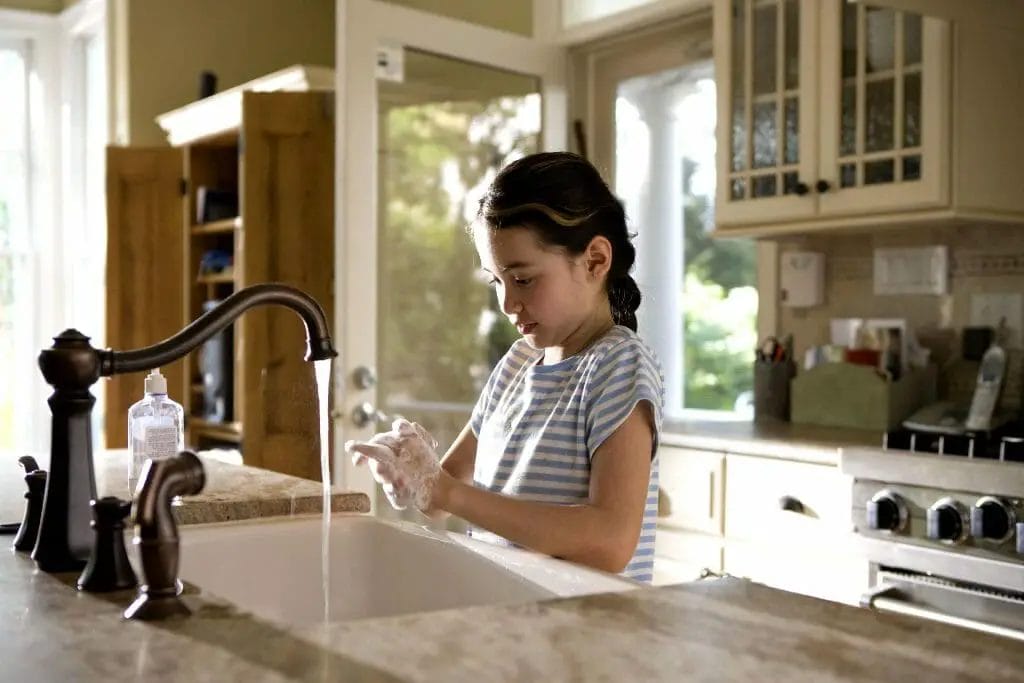
Tap water is not a good option for making coffee. It is usually of low quality, and the chlorine can affect the taste. If you are looking to brew coffee at home with tap water, filtered water is a better option.
If you are brewing Turkish-style coffee with tap water, it should have a TDS of 100-135 ppm for best results. If you are brewing traditional-style coffee with tap water, it should have a TDS of 200-245 ppm for best results.
How Can I Test If My Tap Water Is Good For Brewing Coffee
1) Measure the pH level of the first and last 10 mL’s of what is coming out of your faucet using a pH meter.
If it’s lower than 6.5, then your tap water has low acidity and is perfect for brewing coffee; on the other hand, if it’s higher than 7.3 or has very little acidity at all (like below 5), then this means that there are too many dissolved solids for coffee making purposes and thus will cause over extraction or under extraction.
2) Test “TDS” (total dissolved solids) of your water. This can be done by measuring the conductivity (in S/cm or mS/cm voltage response to a small DC current sent through an ionic solution).
3) Test the amount of “hardness” in your water. This is a measure of how much the water will react with soap and is also expressed as “grains per gallon”. These are easy to test for using simple pocket-sized test kits that are available at many pet stores and pool supply stores.
4) Finally, you could use a coffee maker with filters to remove deposits during brewing.
Filtered Water
Filtered water is the next step up from tap water for brewing coffee. Depending on the water filter used it will remove chlorine and other impurities from the water but will not change the water chemistry.
Depending on the kind of filter used, filtration can remove particles from the water as small as 0.1 microns (about 1/100th the diameter of an average human hair) or less.
This is important because even minute particles can affect your coffee taste. As noted by the European Coffee Brewing Association (ECBA), “a ‘small’ particle is one that has a diameter or greater than 10 microns.
Distilled Water

Distilled water has been heated until it becomes a vapor and then condensed into a liquid again. Distilled water will strip minerals from water and is not good for brewing coffee.
Distilled water is not for use on your coffee machine or any electronic devices. Distilled water for brewing coffee will ruin electronics because it will be very acidic.
Distilled water’s KH and GH are as low as they can get (~0).
As discussed in the water chemistry segment of this post, distilled water is not beneficial because it doesn’t maintain water’s dissolved minerals.
RO Water
Reverse Osmosis water is great for drinking straight up as it tastes very pure and refreshing. However when it is used to brew coffee it should only be used by those who are experienced or higher skilled at brewing coffee because RO water will remove minerals from the water that will result in a coffee taste that is too bland or ‘watery’.
The result of using distilled, RO, de-ionized and filtered water to brew coffee are all identical in their flavor profile in terms of being too bland.
If you do not put minerals back into distilled or reverse osmosis water, coffee made with this type of water will be very acidic and possibly bitter from the lack of dissolved mineral salts in the coffee.
However, if you add minerals back to the RO water, it takes on a much more neutral flavor as long as the minerals are back in the water.
Bottled Water
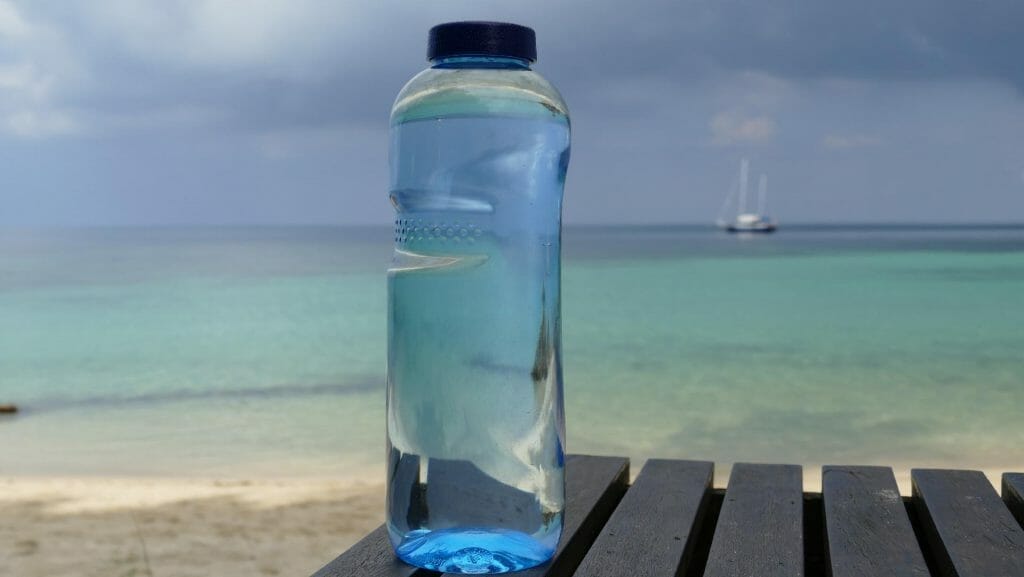
Bottled water can be beneficial to the coffee brewing process depending on the quality of the bottled water.
However, you know that it comes from a spring or an artesian well or from a municipal source like many city tap water sources or county public works departments’ systems.
These water sources are most likely very mineral rich and can interfere with the extraction process and flavor of the coffee.
Different bottled water brands can have different parameters which can lead to subpar coffee because each one can vary dramatically due to how they are bottled. You need to check the TDS and pH of the different brands before purchasing.
Some brands of bottled water have lower carbonate levels and as a result, can increase extraction time and thus produce a stronger brew. In this case, the bottled water will be beneficial to the flavor of your coffee.
Bottled water can be expensive and may not be the most environmentally friendly option, but if you choose bottled water that comes from artesian wells or springs, it will have a low TDS content and are perfect for brewing coffee.
Depending on the brand and where it came from, some premium brands of bottled water will include minerals in their water that help to provide a base for the flavor of the coffee.
Crafting Custom Water For Coffee Brewing At Home
We all know that the best water for coffee is essential. But in some situations you might want to customize the amount of minerals in your water to keep it from being too acidic or otherwise interfering with the taste.
Fortunately, this is not as complicated as brewing from tap water or distilled water. By using a couple easy-to-find items, you can create custom water that is the best water hardness for coffee.
The following is a general overview of different ways to tweak perfect water for coffee:
- Add proper amount of minerals to distilled or RO water for getting the perfect KG to GH ratio.
- Add the proper amount of baking soda to tap water to increase alkalinity to balance out the PH level and eliminate/minimize acidity.
- Add the proper amount of vinegar (apple cider, white or red wine) to distilled water for adding minerals that can be stripped away with other items in tap water.
- Use softened or filtered water when you live in a hard water area for coffee brewing at home. Water softeners that can cut back on mineral content can do this for you.
Using an at home water filtration system to create a custom ratio of minerals is also beneficial for the taste of your coffee by ensuring that you have the proper minerals in your coffee brewing water.
Best water for coffee Conclusion:
In conclusion, If you’re having trouble getting perfect water for coffee to taste the way you want it to, it may be time to look at what you’re using to brew your coffee.
There are a lot of variables to consider when brewing coffee, but the most important one is water quality. Water quality is the single most important factor in the quality of your coffee.
The best water for coffee is free of contaminants, and the best way to ensure that you’re getting the cleanest water is to use a water filter. The best way to know if your water is clean is to test it.

